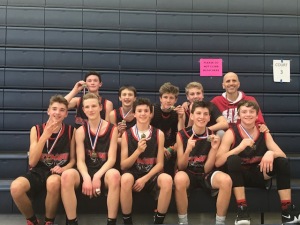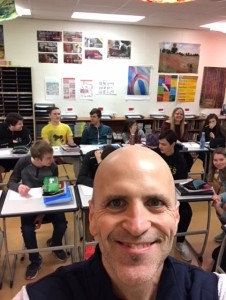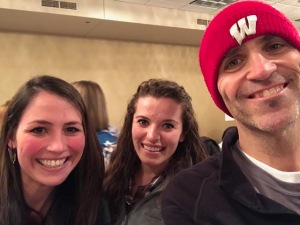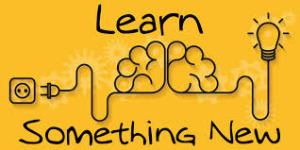April 16, 2023
Until I was 20 years old, my family spent summers on Kelly Lake. My Grandparents on my mom’s side had sold their humble getaway to my parents. The “cottage” was a simple mobile home, maybe 12 feet wide and 50 feet long. It wasn’t very mobile as it sat in the same spot since I had first laid eyes on it as a baby in the summer of 1971. It was the “cottage” to all of us.
Being the baby brother of four older siblings, I was often left in the care of one of my three sisters or my brother. Barb, one of my three older sisters, was the closest to me in age, being just six years my senior. While at the cottage one day when I was 8 years old, Barb took me on a walk down a gravel road to a gift shop to get a Father’s Day gift for my dad. It was a weekday; most folks were somewhere south working so they could afford to steal away to their hideaway on the weekend. It was quiet.
In the clear blue sky, the sun was hot, a warm breeze made the leaves of the aspens and alders chatter high above my head. I walked at a slight distance ahead of my sister, but not too far from her safety. I kicked big rocks and bent over to pick up little ones to chuck ahead of me on the gravel path. I liked the sound of rocks rolling over rocks. We were quiet.
Like all my siblings, Barb was patient with me, letting me test my independence while keeping a watchful eye. I gained confidence in their presence. If I stumbled, they told me to keep on. They helped me believe I could overcome…anything.
The early Christians, namely The Twelve, convinced non-believers to believe. When their contemporaries stumbled, there was no condemnation, just spiritual strengthening. They told stories, they welcomed questions, they helped those who needed help. John emphasizes, “these (stories) are written that you may come to believe” (20:31). Peter carried that torch as well, “even though you do not see him now yet, believe in him” (1 Peter 1:9).
While the apostles expressed urgency in their actions, they were patient in their teaching, by devoting “themselves…awe came upon everyone…every day they devoted themselves…and every day the Lord added to their number those who were being saved” (Acts 2:42-43, 46-47).
As humans, we yearn for independence and exercise our free will, wrestling with the consequences of our decisions daily. Peter recognizes that during our life on earth we may “now for a little while have to suffer through various trials,” he also reminds us that the Resurrection of Jesus Christ gives us a “new birth to a living hope” (1 Peter 1:3).
I choose to believe in this living hope. The hope that I will have “an inheritance that is imperishable, undefiled, and unfading kept in heaven” for me (1 Peter 1:4). I hope to one day walk down that gravel path again, warm, quiet, peaceful. Like the silent confidence I gleaned while being under the watchful eye of my siblings, because of the Resurrection I know I can overcome anything to attain the goal of my faith which is the salvation of my soul (1 Peter 1:9).
In today’s gospel passage from John, we encounter the phrase Peace be with you three separate times (20:19, 21, 26). I want peace for each of you. In your heart, in your mind, in your spirit, may you feel the peace of Christ’s presence in the room where you are independent, quiet, and keeping on.





 Growth mindset
Growth mindset you don’t. Effort, strategies, and collaboration are the result of a growth mindset, processes that we can all engage in to learn broader and deeper.
you don’t. Effort, strategies, and collaboration are the result of a growth mindset, processes that we can all engage in to learn broader and deeper. I did, however, continue to keep an eye on her progress at the side hoop, her effort.
I did, however, continue to keep an eye on her progress at the side hoop, her effort. There are two sources I turn to when I am searching for something deeper, looking for a way to clarify my purpose: the
There are two sources I turn to when I am searching for something deeper, looking for a way to clarify my purpose: the  It is in Act I, scene ii where my heart and mind are gravitating today. A soothsayer warns Caesar to
It is in Act I, scene ii where my heart and mind are gravitating today. A soothsayer warns Caesar to  showering with compliments meant to arouse Brutus’s confidence and worthiness. But unlike Caesar who, revealing his arrogance, smugly brushes off the soothsayer’s warning, Brutus meekly averts Cassius’s praise and affirmation.
showering with compliments meant to arouse Brutus’s confidence and worthiness. But unlike Caesar who, revealing his arrogance, smugly brushes off the soothsayer’s warning, Brutus meekly averts Cassius’s praise and affirmation. contractually, I am a teacher. However, there are responsibilities as literacy coach where I take on a perceived function of administrator. That’s a lonely line.
contractually, I am a teacher. However, there are responsibilities as literacy coach where I take on a perceived function of administrator. That’s a lonely line. or maybe I have allowed self-doubt to merge from perception to disillusioned reality. While I have felt lonely, empty, afraid, and unworthy, I know that I can change my fate if, indeed men are masters of their fate at times, by looking in the mirror. It’s important to honestly assess what comes back to me. Whatever the case, I must see my worthiness through the reflection of the colleagues I work alongside and the students I connect with every day.
or maybe I have allowed self-doubt to merge from perception to disillusioned reality. While I have felt lonely, empty, afraid, and unworthy, I know that I can change my fate if, indeed men are masters of their fate at times, by looking in the mirror. It’s important to honestly assess what comes back to me. Whatever the case, I must see my worthiness through the reflection of the colleagues I work alongside and the students I connect with every day. The Budget
The Budget Dictionary.com, the phonetic spelling looks like this: [
Dictionary.com, the phonetic spelling looks like this: [
 greatest resources in the classroom are time, students, parents, and teachers. Beyond any district’s largest budget line, that is, teacher salaries, all of these resources require minimal financial backing.
greatest resources in the classroom are time, students, parents, and teachers. Beyond any district’s largest budget line, that is, teacher salaries, all of these resources require minimal financial backing.
 Beaver
Beaver


 featuring Jennifer Aniston, Courtney Cox, Lisa Kudrow, Matthew Perry, Matt LeBlanc, and David Schwimmer.
featuring Jennifer Aniston, Courtney Cox, Lisa Kudrow, Matthew Perry, Matt LeBlanc, and David Schwimmer.





 One of the most basic principles I have followed for the majority of my adult life is that I am here to help people succeed. I believe God has called me to serve others through the strengths and talents he has bestowed (I didn’t say
One of the most basic principles I have followed for the majority of my adult life is that I am here to help people succeed. I believe God has called me to serve others through the strengths and talents he has bestowed (I didn’t say  conversations they need to trust me. Teachers need to know that I will not judge them, that I don’t have all the answers, that I am learning alongside them, that I will support their willingness to try new things. Trust cannot be understated.
conversations they need to trust me. Teachers need to know that I will not judge them, that I don’t have all the answers, that I am learning alongside them, that I will support their willingness to try new things. Trust cannot be understated.  what happens, even the good, is not shared outside of that space until the classroom teacher is ready. There have been times when I have been really excited to share what I have observed or the awesomeness of co-teaching with a colleague only to learn that my colleague didn’t feel the same way and wanted to protect that vulnerability.
what happens, even the good, is not shared outside of that space until the classroom teacher is ready. There have been times when I have been really excited to share what I have observed or the awesomeness of co-teaching with a colleague only to learn that my colleague didn’t feel the same way and wanted to protect that vulnerability.  working with students or staff, we are teaching. The sun rises and so do we, to take on the challenges of the most important profession in the world. Continue to build your capacity to teach with urgency every day.
working with students or staff, we are teaching. The sun rises and so do we, to take on the challenges of the most important profession in the world. Continue to build your capacity to teach with urgency every day. day, their purpose becomes clearer than the day before. Solutions lead to new questions, fresh tangents of inquiry, enthusiastic discovery.Teachers help to shape those puzzle pieces and guide students to fill in the vacant spots, whether they are foundation pieces or the ambiguous, puzzling center pieces. The center of our universe.
day, their purpose becomes clearer than the day before. Solutions lead to new questions, fresh tangents of inquiry, enthusiastic discovery.Teachers help to shape those puzzle pieces and guide students to fill in the vacant spots, whether they are foundation pieces or the ambiguous, puzzling center pieces. The center of our universe.  Yes, teachers help students learn. But let’s not miss the abundant opportunities where students help teachers learn. We want our students to love learning as the form into life-long learners. Let’s show them what that looks like through our action, our passion, and our vulnerability
Yes, teachers help students learn. But let’s not miss the abundant opportunities where students help teachers learn. We want our students to love learning as the form into life-long learners. Let’s show them what that looks like through our action, our passion, and our vulnerability people are numerous, sparkling, and peaceful. Like John the Baptist who bore witness to the light, I will continue to be aware of how my thoughts, words, and actions are light for others.
people are numerous, sparkling, and peaceful. Like John the Baptist who bore witness to the light, I will continue to be aware of how my thoughts, words, and actions are light for others.